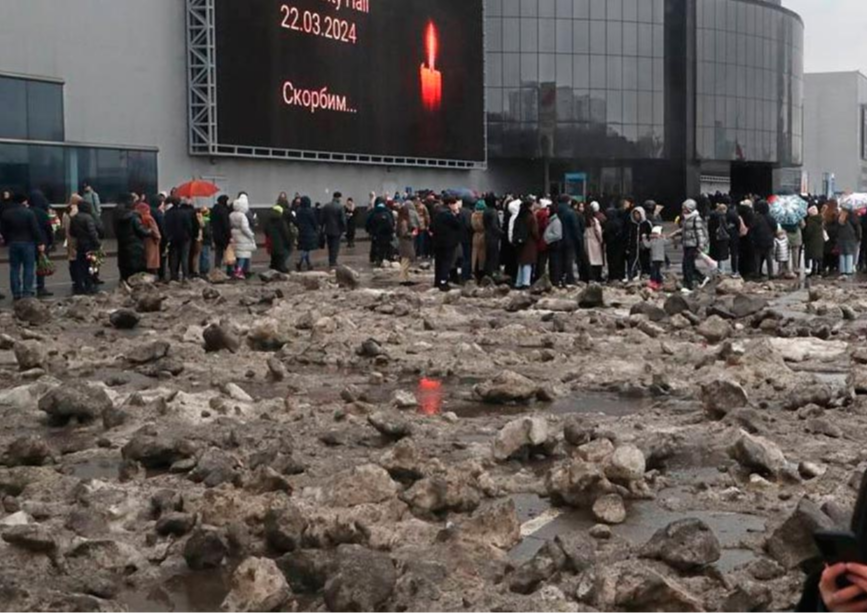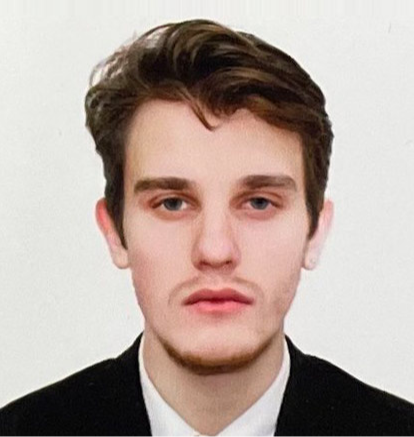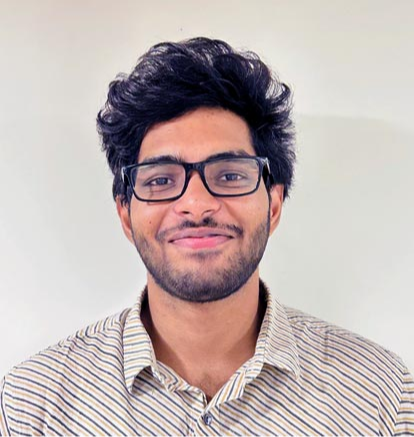-
CENTRES
Progammes & Centres
Location
In Moscow’s calculus, the Crocus attacks require a thorough investigation to ascertain the actors involved in the attacks, apart from the Islamic State

22 March will stand as a sombre day in Russian history, marred by the terrorist onslaught in Crocus City Hall, which claimed the lives of 143 people. Four armed terrorists broke into the building and opened fire at a crowd of over 6,000 people who came to the concert of the local musical group. The terrorists were later apprehended in Bryansk oblast, which borders Ukraine, 370 kilometres from Moscow. Federal Security Service or FSB claims that they tried to escape and were moving towards the Ukrainian border and that Ukraine allegedly prepared “the window” for a getaway. Kyiv marked the statement as “absurd”. The Crocus attacks evoke memories of the tragedies of the Nord-Ost siege in 2002, which claimed the lives of 130 people, and the Beslan school massacre in 2004, which resulted in the death of 334 people. This time, the terrorists did not take hostages and pressed no demands.
Federal Security Service or FSB claims that they tried to escape and were moving towards the Ukrainian border and that Ukraine allegedly prepared “the window” for a getaway.
President Putin later stated that despite the involvement of an Islamic entity in the attack, further investigation has to be conducted to ascertain the level of involvement of other actors, such as Ukraine. He further added that considering the drone attacks conducted by Ukraine on Russia’s civilian populace and energy infrastructure, Ukrainian involvement in ordering such attacks could be plausible.
There is a lot of conflicting information, including those related to public statements. On the one hand, evidence points towards ISIS-K involvement in the attack. The international media refer to Amaq agency’s social media statements in which the grouping took responsibility. Subsequently, the terrorist propaganda outlet released first-person footage depicting the terrorists unleashing gunfire inside the concert hall while shouting Islamist slogans. The details of the arrest of the perpetrators have emerged in Al-Naba, a weekly newspaper linked to ISIS. Secondly, two suspects were in Türkiye before the attack, suggesting their involvement in terrorist activities.
The terrorist propaganda outlet released first-person footage depicting the terrorists unleashing gunfire inside the concert hall while shouting Islamist slogans.
On the other hand, many questioned the nature of information dissemination. The assertion that it was ISIS-K remains to be officially unsubstantiated. The IS has taken responsibility for crimes it did not commit more than once. In addition, the “customer” did not know the “contractor” personally, and the money was transferred from a crypto wallet. The most important is the direction of escape that the terrorists chose, which entangles the case.
Immediately after the attacks, the citizenship of the terrorists was held in question. Initially, reports surfaced that the terrorists held Russian citizenship. However, the Ministry of Internal Affairs refuted these claims, asserting that all the suspects were foreigners. One of them had illegal migrant status as his temporary registration had expired.
Emomali Rahmon, the President of Tajikistan, called Putin to express his condolences and offered cooperation from the Tajik special services and armed forces. During the operational actions in Tajikistan, nine people were arrested in Wahdat, nearby Dushanbe. Tajiks are amongst the largest migrant groups in Russia; since the attack, xenophobia against Tajiks has increased. The embassy of Tajikistan in Russia recommended that Tajik workers remain indoors. Since the attacks, 30 cases of violence against migrants have been recorded, and 2,500 complaints have been reported to NGOs dealing with migrants.
Vyacheslav Volodin, the Chairman of the state Duma, stated that migration laws should be tightened in Russia. The Ministry of Labour proposes the creation of a state-owned entity, “Work in Russia,” which would conduct the organised recruitment of labour migrants. State deputies further suggest fingerprinting labour migrants upon entry and two-year labour contracts. Almaz Tahzibay, a political scientist, believes that further hurdles for migrant workers from Central Asia could disincentivise migrants from migrating to Russia for work.
Re-introducing the death penalty would require a constitutional amendment; Vladimir Vasiliev, the head of the United Russia faction in the state Duma, stated that the re-introduction of the death penalty would be worked out in accordance with the wishes of the society.
The state Duma created a working group to develop laws after the terrorist attack in Crocus. Several other legislative changes were proposed; for instance, they called for banning the possession of firearms for the new citizens of the Russian Federation for five years.
Volodin, LDPR leader Leonid Slutsky, and Dimitri Medvedev, the Deputy Chairman of the security council of the Russian Federation, proposed the re-introduction of the death penalty in Russia, which has been banned in Russia for decades. Re-introducing the death penalty would require a constitutional amendment; Vladimir Vasiliev, the head of the United Russia faction in the state Duma, stated that the re-introduction of the death penalty would be worked out in accordance with the wishes of the society. At present, the introduction of the death penalty looks unlikely.
The recent terrorist attack has brought to the forefront a challenge regarding regional stability and security. The issue of terrorism emanating from Afghanistan and permeating into the territories of Central Asian nations is still predominant, despite the fact that it had been overshadowed within Russia amid broader international political dynamics.
This terrorist incident serves as a stark reminder of the pivotal role the region plays in the security calculus of neighbouring nations. It was the first time the ISIS-K conducted an act of terror outside the region of Greater Khorasan, which stretches across Iran, Turkmenistan, Uzbekistan, Tajikistan, Kyrgyzstan, and Kazakhstan. It is conceivable that active recruitment and training of terrorists may be occurring within the borders of these countries. In early March, the Russian forces eliminated two insurgents from Kazakhstan who were preparing a bombing of Moscow’s synagogue.
The issue of terrorism emanating from Afghanistan and permeating into the territories of Central Asian nations is still predominant, despite the fact that it had been overshadowed within Russia amid broader international political dynamics.
Russia needs to strengthen its interaction within the framework of multilateral structures, particularly the Regional Anti-Terrorist Structure of SCO (RATS) and Collective Security Treaty Organisation (CSTO). Parts of Afghanistan and Southern Tajikistan are also near Kashmir, which is a concern for India’s security. Collaboration between Russia and India can strengthen the efforts to combat regional terrorism. Despite the fact that terrorist activity is now directed towards Russia, the situation may change in future.
The Crocus attack is a new form of terror unleashed upon the Russian state. The perpetrators of the attacks have changed. In earlier incidents, the perpetrators originated from the Caucasus. However, this time, the perpetrators came from Central Asia and could not speak the Russian language. What is more worrisome is that Central Asia has become a hub for ISIS-K to recruit more terrorists. As investigators in Moscow scramble to ascertain the actors involved in the attack, Russia now has to eliminate an emanating ISIS-K in its backyard whilst managing its “special military operation” in Ukraine.
Ivan Shchedrov is a Visiting Fellow at the Observer Research Foundation
Rajoli Siddharth Jayaprakash is a Research Assistant with the Strategic Studies Programme at the Observer Research Foundation
The views expressed above belong to the author(s). ORF research and analyses now available on Telegram! Click here to access our curated content — blogs, longforms and interviews.

Ivan Shchedrov is presently a Visiting Fellow at Observer Research Foundation, New Delhi. He is also a research fellow at the Center of Indo-Pacific Region ...
Read More +
Rajoli Siddharth Jayaprakash is a Junior Fellow with the ORF Strategic Studies programme, focusing on Russia’s foreign policy and economy, and India-Russia relations. Siddharth is a ...
Read More +